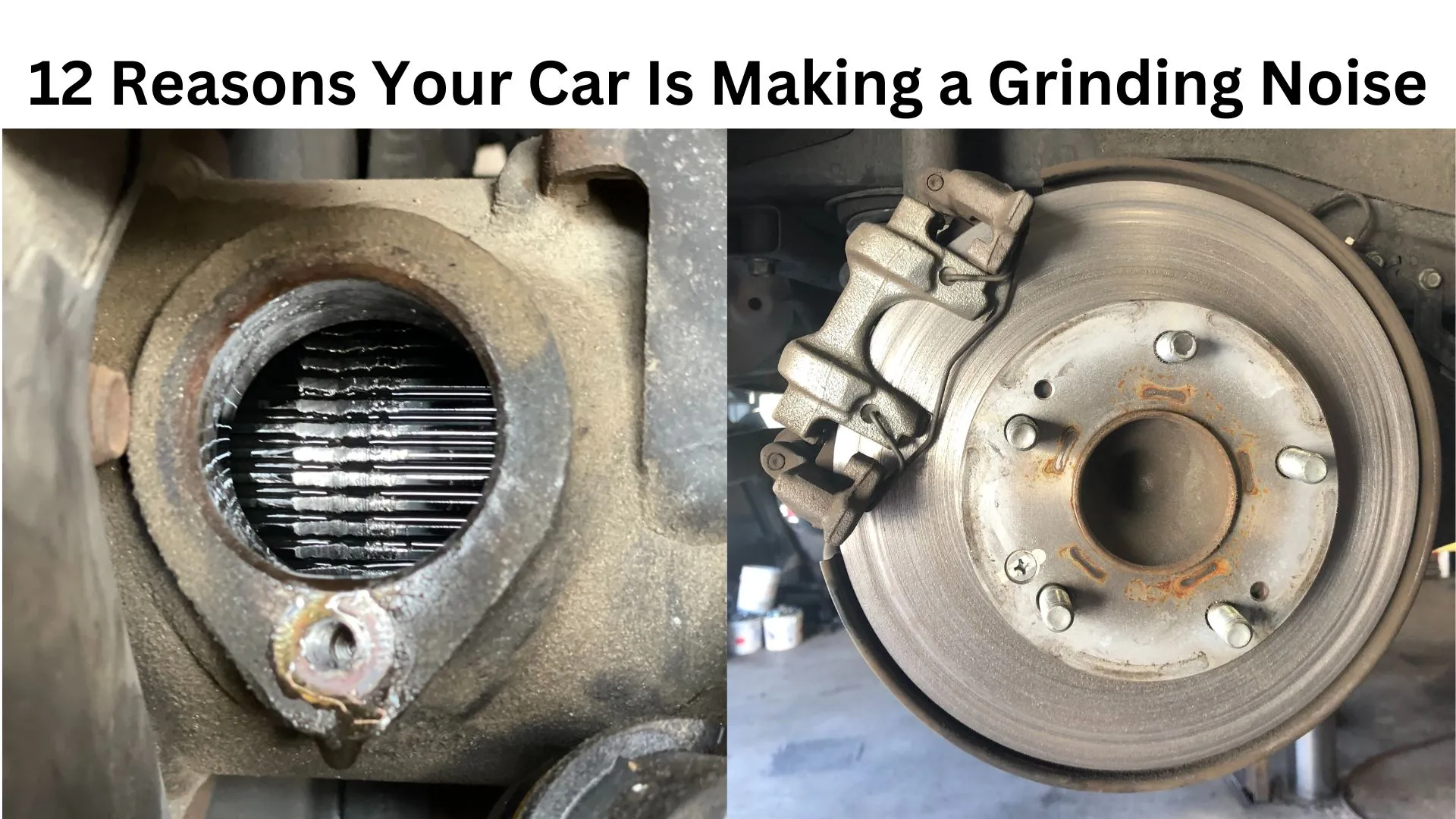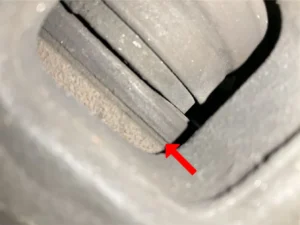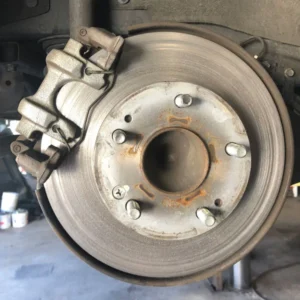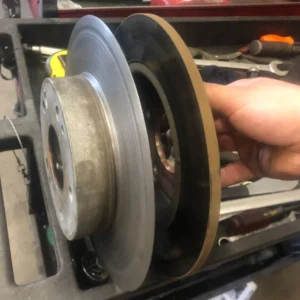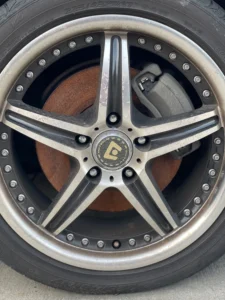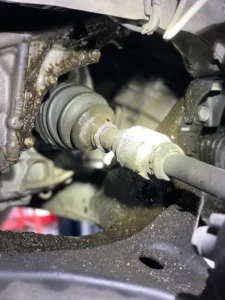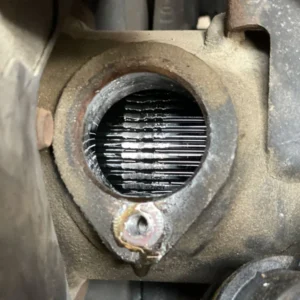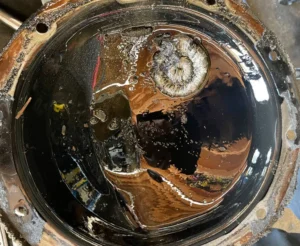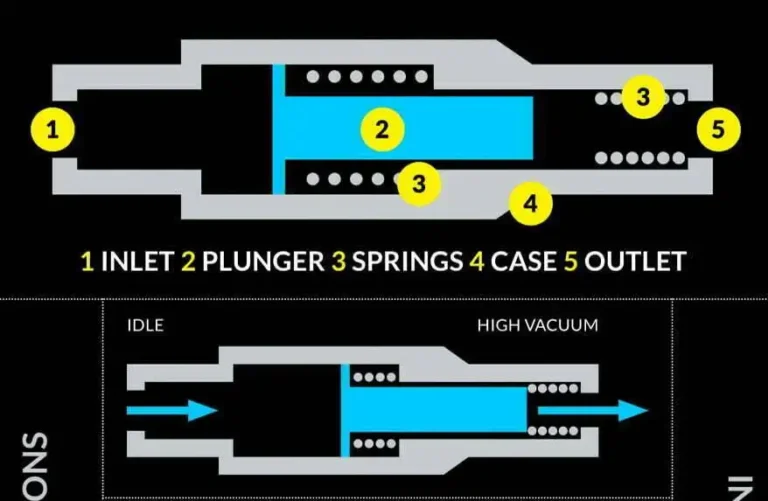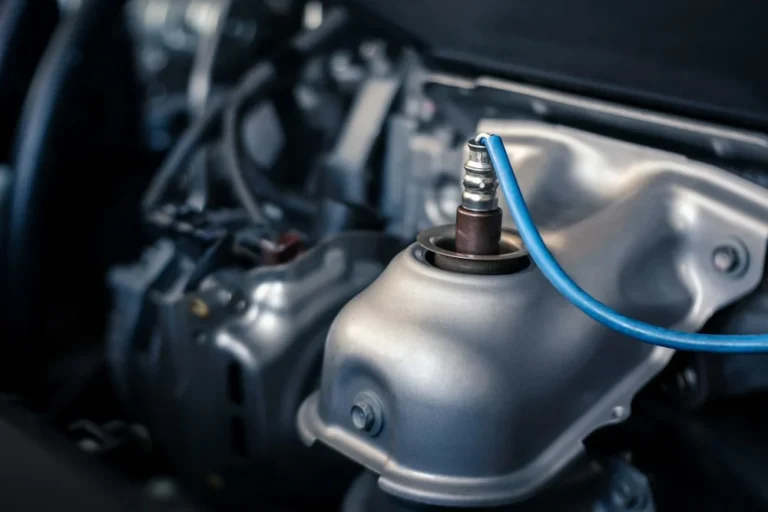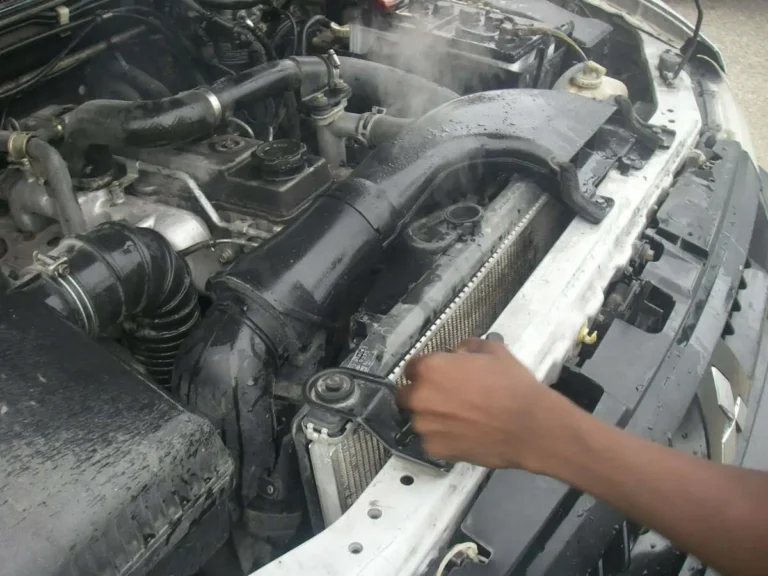Introduction
It can be very annoying to hear a noise when starting, turning or stopping your car. If you hear your car grinding, it means that there is something wrong with one or more of its parts. This can make the car unsafe to drive. You never know when a grinding part of the car will break or otherwise become damaged.
If you hear a grinding noise coming from your car, your first step should be to determine what is causing it. You can take your car to an auto repair shop to have it inspected. Alternatively, if you are mechanically inclined, you can try to figure it out yourself.
Here are the 12 reasons your car is making a grinding noise:
Worn brake pads or rotors
- Worn out brake pads is the most likely cause of brake grinding. If your brake pads are under the recommended thickness, they will squeal every time you press the brake pedal. This unpleasant noise is often called brake scrubbing and is a sign that it’s time to replace your brake pads.

- If you ignore this noise warning, the brake pads will wear down completely. The metal plate of the brake pad will start making contact directly with the rotor (metal to metal contact) and that squealing sound can turn into a grind.


- The grinding gets louder when the brakes are applied and the brake pedal feels low.
- If the brakes are worn out, you need to perform a brake repair service. Brakes are important to your safety while driving, so they should not be neglected.
- A brake inspection is recommended periodically at least every oil change to monitor the brake pad life.
Brake Pad Material
- Different brake pad compounds contain different materials. Semi metallic brake pads are usually cheaper, but contain larger amounts of metal. Which are more likely to make grinding and scraping noises when braking.
- Some racing compounds are known to produce a grinding noise. Even if the brake pad life is ok, this is likely caused by the materials they are made of.
- A brake inspection is recommended to avoid any costly repairs.
Lack of lubrication on the brake system
- To work properly the brake caliper guide pins and hardware need lubrication. This allows the brake caliper and brake pads to be fully released after you stop stepping on the brake pedal. The brake caliper guide pins and hardware are usually cleaned and lubricated every time the brake system is serviced.
- The lack of lubrication or rust formed on the brake caliper guide pins, caliper pistons, or brake pad hardware can prevent the brake pads from coming to a fully released position. Causing the brake pads to constantly drag on the brake rotor, causing a squeal or grinding noise.
Your car has not been driven in a long time rusted rotors
- Rust can accumulate on the brake rotors and brake pads if you don’t drive your car for months. Rust can cause a grinding noise from the brakes whenever the car is in motion.

- The noise usually goes away quickly as the brakes remove rust each time the brakes are applied.
- Rust can accumulate on the brake rotors and brake pads if you don’t drive your car for months. Rust can cause a grinding noise from the brakes whenever the car is in motion.
Rocks or debris stuck between the caliper and rotors
- Foreign objects stuck in the brake system can make a squealing or grinding noise, and they can significantly damage the brake disc. You can try to remove the object gradually by moving your vehicle back and forth in a safe place and grabbing the object. If that doesn’t help, your best bet is to have it checked by a qualified mechanic as soon as possible.
ABS activating
- The brakes can make a screeching noise when the brakes are applied suddenly. When you hit the brakes during a panic stop, you can hear the grind and feel the brake pedal rumble. However, this should not be a concern if the brake pads are thick enough.
- This is likely due to your anti-lock braking system. ABS activates automatically to prevent the wheels from locking and slipping. The system works by pumping the brakes for stability and handling, causing a grinding sound and the rumbling brake pedal.
- When the car has stopped or you take your foot off the pedal, the grinding should stop.
Bent backing plate
- Both drum and disc brake systems use backing discs. Backing plates are located behind the brakes to protect the brake components from water and debris. In a drum brake system, each backing plate also provides an attachment point for the brake pads and related components.
- Because the backing plates are made of thin metal, they can bend easily. When this happens, the backing plate then contacts the rotor (in a disc brake system), creating a grinding sound. It is also possible for the backing plate to touch the drum in a drum brake system, although this problem is much less common.
Faulty wheel bearings
- Wheel bearings are located inside each wheel hub assembly in your vehicle. Their job is to help each vehicle wheel spin smoothly while driving.
- Wheel bearings usually fail due to lack of proper lubrication and simple wear and tear over time. Resulting in metal to metal friction, hence producing a grinding noise.
- Sometimes elements can enter the hub assembly and cause additional resistance to the movement of the wheel bearings. Preventing them from effectively reducing friction when the wheels turn.
Symptoms of bad wheel bearings:
- Grinding noise while driving your vehicle at all speeds, but specially when turning, the noise would be louder when the faulty wheel bearing is receiving more weight. Like when you turn to the right the weight gets on the left side of the vehicle, putting more load on the left side wheel bearing, and if they are the culprit of the noise, the noise would get louder.
- ABS light comes on: Many modern vehicles come with ABS tone rings that are connected to the ABS system, the ABS light on your vehicle’s dashboard may come on if the hub is damaged. In such cases, the entire hub assembly (including the bearings) usually needs to be replaced.
- Loose steering: As worn bearings make your vehicle’s wheel hubs less efficient at turning, you may notice that the steering is less responsive.
- Steering wheel vibration: Bearings that rub against other parts of the hub due to lack of lubrication can create a rough feeling when steering, which can feel like a vibration.
Faulty CV Joint
- Your CV Joint has a bearing inside of it, lubricated with grease, protected by a boot. Sometimes the boot breaks and the grease leaks out, leaving nothing to have the bearing lubricated. As any other bearing without proper lubrication it would start getting metal to metal contact eventually making a grinding noise.

- Your CV Joint has a bearing inside of it, lubricated with grease, protected by a boot. Sometimes the boot breaks and the grease leaks out, leaving nothing to have the bearing lubricated. As any other bearing without proper lubrication it would start getting metal to metal contact eventually making a grinding noise.
Faulty Differential:
- Using the engine’s torque, the differential sends power to each wheel, allowing the wheels to spin at different speeds. Worn differential gears, ring and pinion can cause grinding or humming. You’ll probably hear it when you accelerate.


- When this happens usually a new differential is required to fix the issue.
- Using the engine’s torque, the differential sends power to each wheel, allowing the wheels to spin at different speeds. Worn differential gears, ring and pinion can cause grinding or humming. You’ll probably hear it when you accelerate.
Transmission Issues
- Damaged gears inside of the transmission make a grinding noise especially when you change gears in automatic and manual transmissions.
- If your car has a clutch and you hear a noise while changing gears, then it’s possible that the clutch is getting worn out or it may need adjustment.
- If you suspect that it is your clutch or transmission, then you need to have these inspected by a qualified mechanic.
Engine problems: pulleys and or bearings, alternator, water pump, power steering pump, ac compressor
Water Pump
- If the grinding noise comes from the engine bay, while the engine is running, chances are that you have a faulty water pump bearing.
Alternator.
- Grinding noises can also be a sign that the alternator bearing is wearing out.
Air Conditioning Compressor
- If you hear the noise when you activate the Air Conditioning, and it goes away when you deactivate it, it’s a sign that the bearing on the compressor has failed, and needs to be replaced.
- In general any bearing on the drive belt system once has failed, could get stuck, causing friction with the belt and eventually ripping the belt apart. This would make all of the accessories powered by the belt be disabled, and most likely will cause your engine overheats, the battery stops charging and the power steering stops working.
- It is highly recommended that you find and fix any noises, to prevent any other issues or even more damage along the road.
Conclusion:
If you hear a grinding noise while driving the simplest solution is to have a mechanic inspect your car. There are numerous causes for grinding noises, and you’ll need to identify the exact issue before you can fix it.
If you are concerned about driving with a grinding noise schedule an appointment at Comtires to have your car inspected by qualified technicians.

